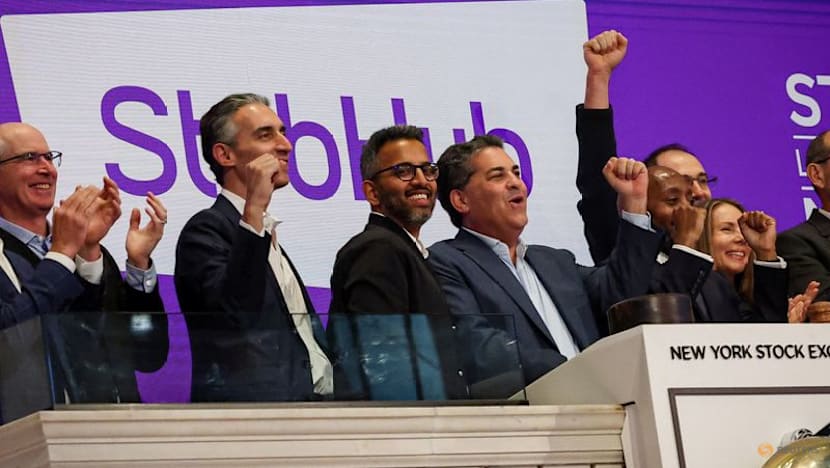Ticketing platform StubHub erases gains to close below issue price in choppy NYSE debut




Shares of StubHub rose about 8 per cent in their New York Stock Exchange debut on Wednesday, but closed the day below their issue price as investors welcomed the ticket reseller marketplace with caution.
The New York-based company's shares opened at $25.35 per share, compared with the offer price of $23.5, valuing the ticket reseller marketplace at $9.32 billion at first trade.
However, the shares reversed course in a volatile trading session to close 6.4 per cent below the IPO price at $22.
The closing price values StubHub at $8.09 billion, which is still nearly double the $4.05 billion viagogo had paid to acquire the company from eBay.
After exiting StubHub, co-founder Eric Baker had launched viagogo in 2006 as a European rival.
StubHub raised nearly $800 million in its long-awaited U.S. IPO by selling 34 million shares, pricing within its marketed range of $22 to $25 apiece, less than six months after delaying its listing plans due to volatility from the tariff policies of President Donald Trump.
"It is just a step in the road for what we want to build and to ultimately become the destination for all live events and all tickets," Baker told Reuters in an interview.
"It is really a deleveraging event for us to raise the capital, to pay down debt."
IPOs have staged a triumphant return to U.S. exchanges this fall after years of sluggish activity due to higher interest rates and inflated valuations.
Debuts for Swedish fintech Klarna, blockchain lender Figure and crypto exchange Gemini have headlined one of the busiest IPO windows since 2021.
While tech-focused and crypto stocks have anchored a long-awaited IPO market recovery, sticky inflation and widening labor market cracks continue to fuel concerns.
WHAT'S NEXT
StubHub's debut could prove a barometer for a sector where competitors, except Ticketmaster-parent Live Nation, have struggled to succeed in public markets.
StubHub's revenue grew 3 per cent in the first half of 2025, half of Live Nation's 6 per cent growth in the same period.
Rival Vivid Seats, which was taken public via a special purpose acquisition company in 2021, is down nearly 82 per cent this year after shedding 27 per cent last year. The company was reportedly exploring a sale in December.
"With revenue growth still slow and the industry under scrutiny for fees and fairness, investor appetite looks more measured than exuberant," said Kat Liu, vice president at IPO research firm IPOX.
As ticket-selling platforms benefit from an explosion in consumer appetite for outdoor events, record consumer rush for events such as Taylor Swift's "The Eras Tour" has also meant heightened scrutiny of reseller practices.
The U.S. Federal Trade Commission has sought information from artists and fans about unfair and anticompetitive practices in the live concert and event industries as part of a crackdown by the Trump administration on "exploitative ticket scalping".













